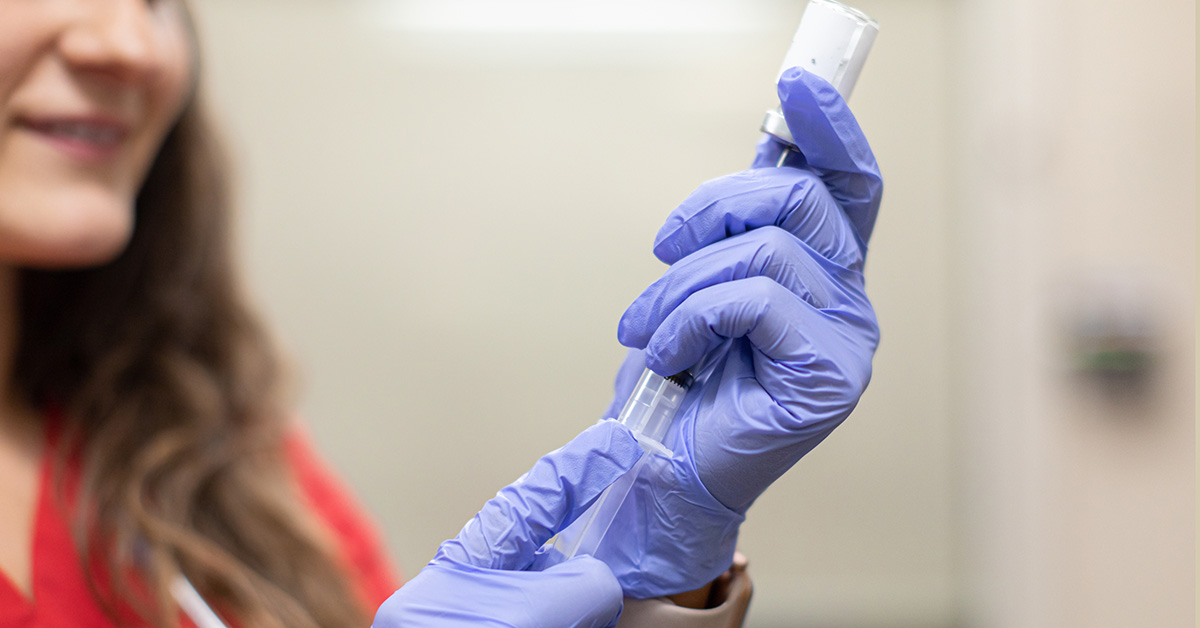Cancer: A Preventable Disease

Cancer incidence is continuously rising in the State of Texas. The American Cancer Society (ACS) projects 124,890 new cases will be diagnosed in Texas during 2019, and approximately 41,300 people will die due to the disease.
It may be surprising to know that 80-90 percent of all cancers are caused by lifestyle factors and environment, and only 5-10 percent are due to genetics. The risk factors include, but are not limited to tobacco, alcohol, unhealthy diet, sun exposure, environmental pollutants, infections, stress, obesity and physical inactivity.
Since these cancer risk factors are avoidable, changing one’s lifestyle is an important key to prevention. In fact, the ACS revealed that at least 42 percent of newly diagnosed cancers in the U.S. are potentially avoidable if a healthier lifestyle is adopted. ACS also advises that certain other cancers could be prevented through lifestyle and behavioral changes, vaccination or regular examinations. Thus, if one considers some important ACS tips, cancer prevention is possible.
The first and most important tip is to avoid consuming tobacco, either by smoking or chewing. Smoking is not only responsible for lung cancer, but also causes cancer of mouth, throat, larynx, pancreas, bladder, cervix and kidney. Chewing or dipping tobacco primarily causes cancer of the oral cavity, but it also is linked to pancreatic and esophageal cancer. Passive smoking (e.g., living with a smoker and getting exposed) is also a risk factor for tobacco-related cancer that can be avoided by making one’s surroundings free of tobacco smoke.
Another important tip is to modify unhealthy dietary habits. Regularly consuming alcohol, red or processed meat and other fried, fatty and junk foods are causative factors for several types of cancers. Conversely, research suggests that consuming more fruits, vegetables, whole grains, nuts, legumes and other foods from plant sources reduces the overall risk of cancer. There is epidemiological evidence suggests that those who primarily adhere to a plant-based diet have a 25 times lower incidence rate of prostate cancer and a 10 times lower incidence of breast cancer.

Staying physically active also can reduce cancer risk. Physical inactivity may increase the body weight and lead to obesity, which is a risk factor for various forms of the disease like breast, prostate, lung, colon and kidney cancer. Therefore, maintaining a healthy body weight is important, as is participating regularly in physical activities like aerobic exercise, walking, jogging and yoga can lower the risk of cancers.
Ultraviolet radiation from the sun is the main cause of skin cancer, including melanoma, so protecting the body from intense sunlight can significantly reduce the skin cancer risk. Avoiding intense sunlight by staying inside or in a shaded area is important, and shielding the skin from direct sunlight is also recommended. The use of sunscreen also may reduce the effect of ultraviolet radiation from the sun.
Although it is not possible to completely prevent exposure to environmental pollutants, some important steps can be taken, including less use of plastics and washing produce before use. Environmental pollutants such as asbestos, heavy metals, benzene, aromatic amines and polychlorinated biphenyls are a major cause of leukemia and lung, skin, bladder, prostate and breast cancer, so it also is important to protect oneself from exposure to these industrial and environmental toxins.

Timely vaccinations also can help prevent virus-related cancers. For example, the hepatitis B virus causes liver cancer and the human papilloma virus (HPV) is responsible for cervical and other genital cancers. Two-dose and three-dose vaccines are available against hepatitis B, and FDA-approved Gardasil 9 is an effective HPV vaccine that not only prevents cervical cancer, but also genital warts and other genital diseases.
Early diagnosis has always been key to successfully treating cancer, so getting regular medical exams is a final and very important prevention tip. Regular self-examination and screening also can help detect several types of cancer like breast, cervix, skin, prostate and colon cancer in their early stages.
Science and medicine will almost certainly continue making strides in detecting and treating cancer, but patients can reduce their chances of developing this life-altering disease by adjusting their life style, improving their dietary and exercise habits, altering their environment and undergoing regular and timely screening.
Sanjay K. Srivastava, Ph.D., is a Distinguished Professor and Chairman of the Department of Immunotherapeutics and Biotechnology at the TTUHSC Jerry H. Hodge School of Pharmacy and a highly accomplished cancer researcher.
Related Stories
Celebrating Veterans: TTUHSC’s General Martin Clay’s Legacy of Service and Leadership
From his initial enlistment in the Army National Guard 36 years ago to his leadership in military and civilian health care management roles, Major General Martin Clay’s career has been shaped by adaptability, mission focus and service to others.
Texas Tech University Health Sciences Center School of Nursing Named Best Accelerated Bachelor of Science in Nursing Program in Texas
The TTUHSC School of Nursing Accelerated Bachelor of Science in Nursing (BSN) program has been ranked the No. 1 accelerated nursing program in Texas by RegisteredNursing.org.
TTUHSC Names New Regional Dean for the School of Nursing
Louise Rice, DNP, RN, has been named regional dean of the TTUHSC School of Nursing on the Amarillo campus.
Recent Stories
The John Wayne Cancer Foundation Surgical Oncology Fellowship Program at Texas Tech University Health Sciences Center Announced
TTUHSC is collaborating with the John Wayne Cancer Foundation and has established the Big Cure Endowment, which supports the university’s efforts to reduce cancer incidence and increase survivability of people in rural and underserved areas.
TTUHSC Receives $1 Million Gift from Amarillo National Bank to Expand and Enhance Pediatric Care in the Panhandle
TTUHSC School of Medicine leaders accepted a $1 million philanthropic gift from Amarillo National Bank on Tuesday (Feb. 10), marking a transformational investment in pediatric care for the Texas Panhandle.
Texas Tech University Health Sciences Center Permian Basin Announces Pediatric Residency Program Gift
TTUHSC Permian Basin, along with the Permian Strategic Partnership and the Scharbauer Foundation, Feb. 5 announced a gift that will fund a new pediatric residency.
